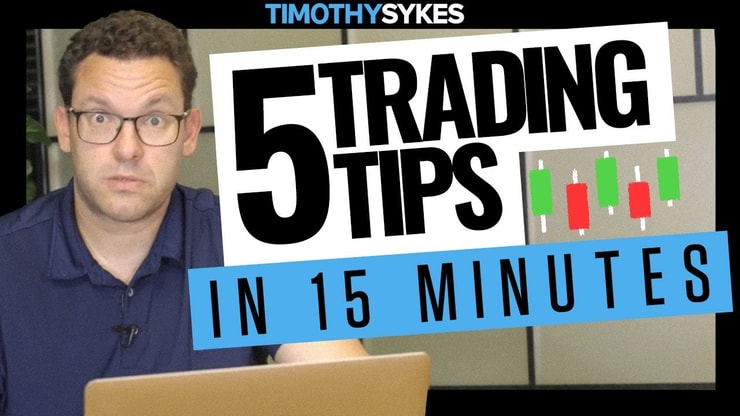Day trading in Canada involves buying and selling financial instruments like stocks, options, and commodities within the same trading day. The goal? To profit from short-term price fluctuations. It’s a high-risk, high-reward strategy that requires a solid understanding of the market, quick decision-making, and a robust trading plan.
Read this article because it equips you with the knowledge to navigate the Canadian day trading scene, backed by years of trading experience.
I’ll answer the following questions …
- What Is Day Trading and How Does It Work in Canada?
- What Tools and Resources Do Day Traders in Canada Need?
- What Are the Different Day Trading Strategies?
- How Do You Manage Risks in Day Trading?
- How Do You Choose the Right Broker for Day Trading in Canada?
- Is Day Trading Worth It for Beginners?
Table of Contents
- 1 What Is Day Trading?
- 2 Getting Started with Day Trading in Canada
- 3 Tools and Resources for Day Traders in Canada
- 4 Strategies and Techniques for Day Trading in Canada
- 5 Risks and Requirements of Day Trading in Canada
- 6 Financial Aspects of Day Trading in Canada
- 7 Choosing the Right Broker for Day Trading in Canada
- 8 Key Takeaways
- 9 Canadian Day Trader FAQs
- 9.1 Is Day Trading Worth It?
- 9.2 Can Beginners Do Day Trading?
- 9.3 How Are Day Trading Activities Taxed?
- 9.4 What Is a Pattern Day Trader in Canada?
- 9.5 Which Markets Can Day Traders Focus On?
- 9.6 Can Canadians Day Trade U.S. Stocks?
- 9.7 What Financial Metrics Should Day Traders Monitor?
- 9.8 What Tools Do Day Traders Use?
- 9.9 Is Day Trading a Full-Time Job in Canada?
- 9.10 How Do Taxes Affect Canadian Day Traders?
- 9.11 What Investment Strategies Are Suitable for Day Trading?
- 9.12 Can I Use a TFSA for Day Trading?
- 9.13 What Are Some Additional Resources for Day Traders?
- 9.14 What’s the Minimum Capital Needed for Day Trading?
- 9.15 What Are the Best Times for Day Trading?
- 9.16 How Do I Find Job Opportunities in a Day Trading Company?
What Is Day Trading?
Day trading is the practice of buying and selling financial assets within a single trading day. Unlike long-term investing, where you hold onto assets for months or years, day trading aims to capitalize on short-term market movements. In my years of trading and teaching, I’ve seen people get lured by the potential for quick profits, but remember, it’s not a get-rich-quick scheme.
How Does Day Trading Work in Canada?
In Canada, day trading operates much like it does in other countries. You’ll need a brokerage account, a solid trading strategy, and a good understanding of the market. The Toronto Stock Exchange (TSX) and the NASDAQ Canada are popular platforms for Canadian day traders.
Is Day Trading Legal in Canada?
Yes, day trading is entirely legal in Canada. However, it’s regulated by the Investment Industry Regulatory Organization of Canada (IIROC), which sets rules and regulations to protect investors. Make sure you’re aware of these regulations before diving in.
Getting Started with Day Trading in Canada

Starting your day trading journey in Canada involves several steps, from choosing the right broker to setting up your trading platform. I’ve been through this process, and I can tell you, the right preparation is crucial for success.
Once you’ve set up your trading platform and deposited funds, it’s crucial to keep track of your activities. A trading journal helps you record your trades, strategies, and outcomes. This invaluable tool allows you to review your performance, identify mistakes, and refine your strategies. Trust me, it’s a game-changer for improving your trading skills. For a comprehensive guide on how to maintain a trading journal, check out this detailed article.
More Breaking News
- Credo Technology Stock Skyrockets After Impressive Fiscal Performance
- Valterra Platinum Strengthens Position with Impressive Earnings Surge
- Morgan Stanley’s Bold Moves Boost Cipher Mining’s Prospects
- Goodyear Faces Challenges with Earnings Miss Amid Industry Turbulence
How To Become a Day Trader in Canada
Becoming a day trader in Canada requires a mix of education, capital, and a well-thought-out trading plan. You’ll need to understand various trading instruments like stocks, options, and ETFs. Then, you’ll need to deposit funds into a brokerage account, which will serve as your primary tool for executing trades.
Researching Online Brokerages
Before you can start trading, you’ll need to choose a brokerage. In Canada, there are several reputable online brokerages that offer a range of services, including data analysis tools, low fees, and quick execution speeds. Research is your best friend here.
Opening a Brokerage Account
Once you’ve chosen a broker, the next step is to open a brokerage account. This usually involves providing some personal information and financial documents. You’ll also need to deposit funds into the account, which you’ll use for trading.
Establishing a Regular Trading Routine
Consistency is key in day trading. Establish a regular trading routine that includes market research, actual trading, and post-trading analysis. This will help you become more disciplined and improve your trading skills over time.
Tools and Resources for Day Traders in Canada

Day trading isn’t just about intuition; it’s a data-driven activity that requires the right tools and resources. From analytical software to educational courses, the right tools can make a significant difference in your trading outcomes.
Analytical software and charts are essential, but so is the platform where you execute your trades. The right trading platform should offer a user-friendly interface, quick execution speeds, and robust analytical tools. In Canada, you have several options to choose from, and the choice can significantly impact your trading experience. For an in-depth review of the best trading platforms in Canada, here’s a useful guide.
Analytical Software
Analytical software helps you analyze market trends, price movements, and other essential data. These tools can provide real-time information, which is crucial for making quick trading decisions.
Charts and Technical Analysis
Charts and technical analysis are your bread and butter in day trading. They help you understand market trends and make educated guesses on where the market might go next. I’ve used these tools extensively in my trading career, and they’re indispensable for any serious day trader.
Books for Beginners
If you’re new to day trading, books can provide valuable insights. They offer strategies, tips, and a solid foundation in understanding the market. Don’t underestimate the power of good old-fashioned book learning in a digital world.
Strategies and Techniques for Day Trading in Canada

Day trading is all about strategies and techniques. It’s not gambling; it’s a skill that you can learn and improve upon. And in my years of trading, I’ve found that a good strategy is your best friend in this business.
While day trading strategies like swing trading and scalping are popular, don’t overlook the potential of penny stocks. These low-priced stocks can offer significant returns if traded wisely. However, they come with their own set of risks and require a different approach. If you’re curious about incorporating penny stocks into your day trading strategy, here’s a must-read article.
Day Trading Strategies
There are various day trading strategies you can employ, such as swing trading, scalping, and momentum trading. Each has its own set of rules and is suited for different types of markets. The key is to find a strategy that fits your trading style and stick to it.
Types of Orders for Day Trading
Understanding the types of orders is crucial for effective day trading. Market orders, limit orders, and stop orders each serve different purposes and are used in various trading strategies. Knowing when to use each can significantly impact your trading success.
Algorithm Trading, Price Action Trading, and Scalping
Algorithm trading involves using automated software to make trading decisions based on a set of criteria. Price action trading focuses on the price movements of an asset, while scalping aims to make many small profits throughout the day. These are more advanced techniques that require a deep understanding of the market.
Risks and Requirements of Day Trading in Canada
Day trading is not without its risks. From market volatility to the psychological toll it can take, it’s essential to understand what you’re getting into.
The Risks of Day Trading
Day trading involves significant risks, including the potential for substantial financial loss. Market volatility can quickly turn a profitable trade into a losing one. Therefore, it’s crucial to have a risk management strategy in place.
Risk Management
Risk management involves setting stop-loss orders, diversifying your portfolio, and only risking a small percentage of your capital on a single trade. These practices can help mitigate the risks associated with day trading.
Psychological Aspects of Day Trading
Day trading can be emotionally taxing. The pressure to perform and the emotional highs and lows can impact your decision-making ability. It’s crucial to keep a level head and stick to your trading plan.
Financial Aspects of Day Trading in Canada

Day trading can be profitable, but it’s essential to understand the financial aspects, including taxes and leverage, to maximize your returns.
How Much Money Will You Make?
The amount of money you can make day trading varies widely and depends on various factors like your skill level, the amount of capital you have, and market conditions. There’s potential for significant profits, but also for substantial losses.
Taxes and Day Trading in Canada
In Canada, the income you earn from day trading is considered business income, and you’ll be taxed accordingly. Understanding the tax implications can help you keep more of your hard-earned money.
Leverage in Day Trading
Leverage involves borrowing money to increase your trading capital. While it can amplify your profits, it also increases your risks. Use leverage cautiously and understand the implications before diving in.
Choosing the Right Broker for Day Trading in Canada

Your broker plays a crucial role in your day trading activities. From the fees they charge to the trading platform they offer, choosing the right broker can make or break your trading career.
Top 3 Brokers in Canada
There are several reputable brokers in Canada, each with its own set of features and fee structures. Some of the top brokers include Questrade, Interactive Brokers, and TD Direct Investing. Choose one that fits your trading style and needs.
Low Fees and Commissions
Low fees and commissions are essential for day traders who execute multiple trades each day. Even a small difference in fees can significantly impact your overall profitability.
Execution Speed and Customer Support
Execution speed is crucial in day trading, where seconds can make a difference. Additionally, reliable customer support can be invaluable, especially when you encounter issues during trading.
Key Takeaways

Day trading in Canada is a viable way to make money, but it comes with its own set of challenges and risks. From choosing the right broker to understanding tax implications, there’s a lot to consider. But with the right tools, strategies, and mindset, it’s a career that offers both financial and personal rewards.
Trading isn’t rocket science. It’s a skill you build and work on like any other. Trading has changed my life, and I think this way of life should be open to more people…
I’ve built my Trading Challenge to pass on the things I had to learn for myself. It’s the kind of community that I wish I had when I was starting out.
We don’t accept everyone. If you’re up for the challenge — I want to hear from you.
Apply to the Trading Challenge here.
Trading is a battlefield. The more knowledge you have, the better prepared you’ll be.
What Canadian stocks are on your watchlist? Let me know in the comments — I love hearing from my readers!
Canadian Day Trader FAQs

Is Day Trading Worth It?
Day trading can be worth it if you’re willing to put in the time, effort, and capital. However, it’s not a guaranteed way to make money and involves significant risks.
Can Beginners Do Day Trading?
Yes, beginners can do day trading, but it’s crucial to educate yourself and practice before diving in. Many online courses and books can help you get started.
How Are Day Trading Activities Taxed?
In Canada, day trading activities are considered a business, and you’ll be taxed accordingly. It’s essential to understand the tax implications to maximize your returns.
What Is a Pattern Day Trader in Canada?
A pattern day trader in Canada is someone who executes at least four day trades within five business days. These trades should make up more than 6% of the trader’s total transactions during that period. You would primarily be dealing with shares in the stock market.
Which Markets Can Day Traders Focus On?
Day traders in Canada can focus on various markets and securities, including Dow Jones, bonds, currencies, forex trading, and indices like the S&P index.
Can Canadians Day Trade U.S. Stocks?
Canadians can day trade stocks of companies based in the United States. However, different earnings reports and share prices may affect the market differently in each country.
What Financial Metrics Should Day Traders Monitor?
Day traders should keep an eye on volume, capital gains, day trading profits, and capital gains tax. Understanding these financial metrics can help you better assess potential gain and gains.
What Tools Do Day Traders Use?
Day traders often use various tools like technical indicators, trading methods, systems, and trading accounts. Some even use algorithms for high-frequency trading and margin accounts to leverage their investments.
Is Day Trading a Full-Time Job in Canada?
Day trading can be both a full-time job and a part-time endeavor, depending on your actions and direction. Some traders hold multiple positions at the same time. The training and client interaction level can also vary.
How Do Taxes Affect Canadian Day Traders?
Canadian day traders should be aware of the tax rate applicable to their trading activity. You can fund your trading account with dollar savings, but you need to account for taxes on both part and the most significant chunk of your gains.
What Investment Strategies Are Suitable for Day Trading?
When day trading, focus on short-term investment strategies. Keep track of results, value, and your overall investment plan. Be cautious of debt and keep some cash on hand for quick trades.
Can I Use a TFSA for Day Trading?
No, the TFSA (Tax-Free Savings Account) is generally not recommended for day trading in Canada due to regulations that consider frequent trading as a business activity.
What Are Some Additional Resources for Day Traders?
For further guidance, you can refer to online pages, news trading articles, and trading forums. Look for a logo or other forms of security to ensure you’re on a reputable site. Always consider any example and question everything.
What’s the Minimum Capital Needed for Day Trading?
The minimum capital requirements for day trading can vary based on the broker and types of securities you choose to trade. Account for costs and other trading fees as well.
What Are the Best Times for Day Trading?
The best times for day trading usually coincide with market opening and closing hours. During these times, market changes are more volatile, offering more opportunities.
How Do I Find Job Opportunities in a Day Trading Company?
To access job opportunities in day trading, you can start by networking in trading communities, attending webinars, or looking for openings on career websites. Various companies offer roles ranging from junior traders to portfolio managers. Some jobs may require experience in trading specific securities or a proven track record in spotting trading opportunity.





Leave a reply